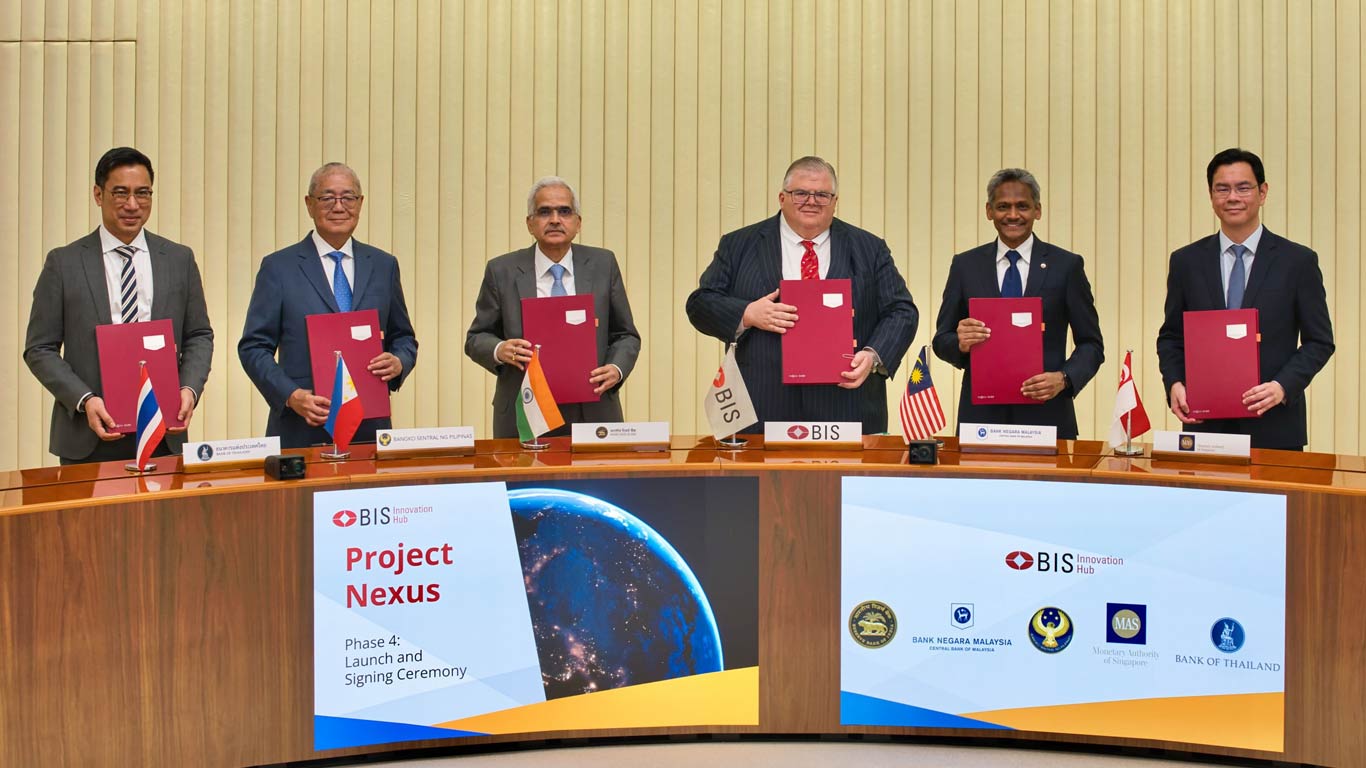India to create cross-border retail payments platform with four ASEAN countries

India has joined Project Nexus, a multilateral international initiative aimed at enabling instant cross-border retail payments by interconnecting payment systems of different countries.
Nexus was conceptualised by the Innovation Hub of the Bank for International Settlements (BIS) to connect the payment systems of four ASEAN countries (Malaysia, the Philippines, Singapore and Thailand) and India, which will be the founding member and first mover country of the platform.
According to a statement by the Reserve Bank of India (RBI), the BIS and the central banks of the founding countries – Bank Negara Malaysia (BNM), Bank of Thailand (BOT), Bangko Sentral ng Philippines (BSP), Monetary Authority of Singapore (MAS), and RBI signed an agreement on Sunday (June 30, 2024) in Basel, Switzerland.
Indonesia, which has been involved since the early stages, remains involved as a special observer.
The RBI statement said that this platform can be expanded to more countries in the future.
The platform is expected to go live by 2026. Once functional, Nexus will play a vital role in making retail cross-border payments efficient, faster, and more cost-effective.
RBI is collaborating bilaterally with various countries to link India’s digital public infrastructure – Unified Payments Interface (UPI) with their respective counterparts for cross border payments.
While India and its partner countries will continue to benefit through such bilateral connectivity of fast payment systems, a multilateral approach like this nexus will further boost such efforts to expand the international reach of Indian payment systems.
Digital payments are scaling new heights in India as its citizens increasingly adopt emerging methods of transacting over the internet.
The UPI payment system has become extremely popular for retail digital payments in India, and its usage is growing rapidly.
UPI is India’s mobile-based fast payment system that allows customers to make instant payments 24×7 using a Virtual Payment Address (VPA) created by the customer.
Among other things, the main focus of the Indian government has been to ensure that the benefits of UPI are not just limited to India; other countries also benefit from it. So far, several countries including Sri Lanka, Mauritius, France, UAE and Singapore have partnered or intend to partner with India on emerging fintech and payment solutions.
UPI’s share in digital payments in India is set to reach close to 80 percent in 2023. Today, India accounts for about 46 percent of the world’s digital transactions (as per 2022 data).











